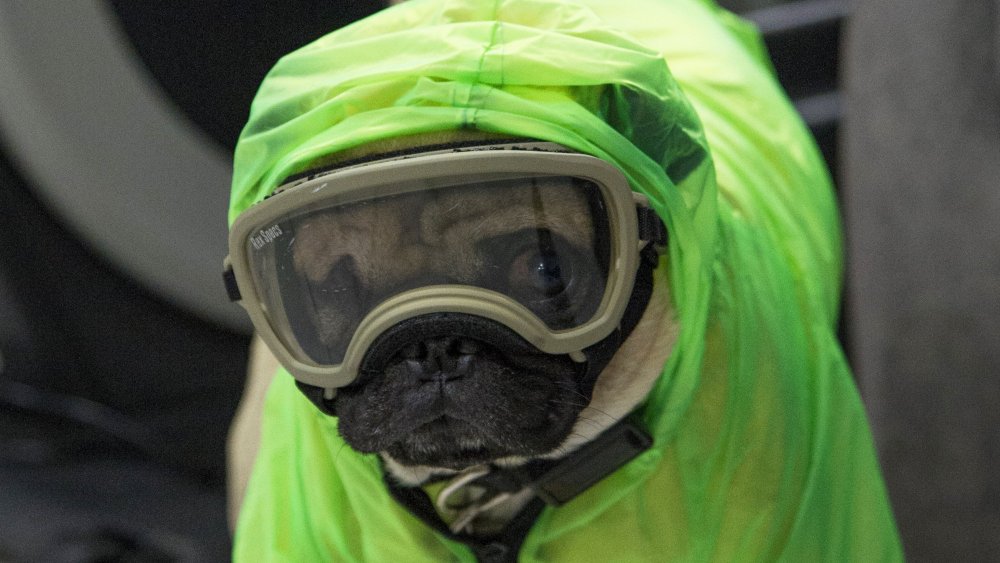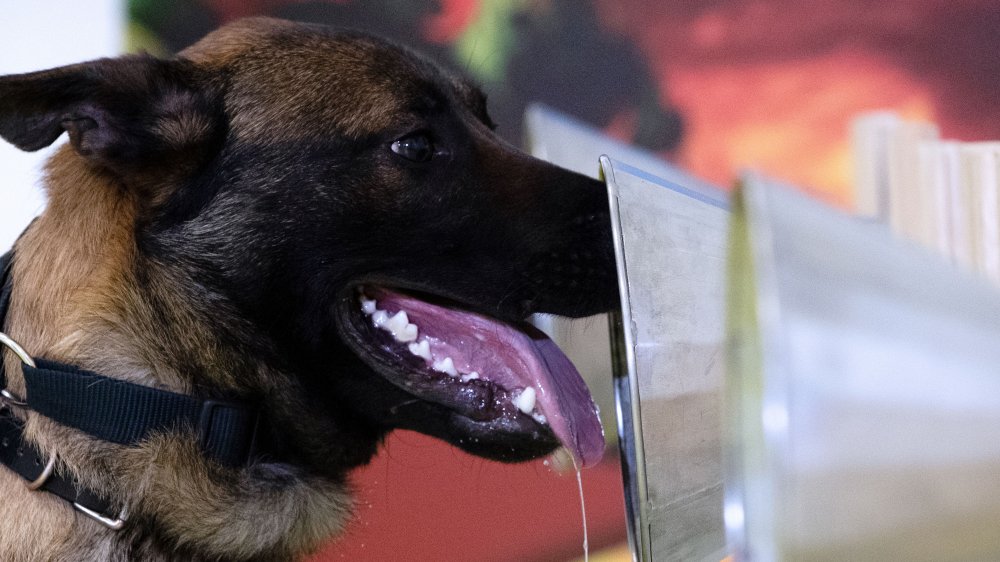Here's How Dogs Could Help Detect The Coronavirus
According to emeritus professor of ecology and evolutionary biology Dr. Marc Bekoff, a dog's schnoz contains 300 million receptors, roughly 60 times as many as a human, making their sense of smell an estimated 100,000 to 100 million times as powerful as their owner's. With all the butt-sniff that dogs do, it almost seems like an evolutionary prank that they have super noses. Unless canine flatulence has the mouth-watering aroma of a delicious brisket, why would Fido want an extra-strong whiff of the hole it comes from? Nature sure is strange.
A dog's natural willingness to brave a world devoid of joyous brisket farts is part of what makes these animals man's best friend and possibly man's even better medical test. You might assume that dogs are best-suited for some sort of proctology examination. But you know what happens when you assume: a dog sniffs the first three letters of your assumption. Dogs are great at sniffing out all sorts of maladies, whether it's the bag of cocaine you accidentally shoved too far up your backside or cancer of the non-butt. Their otherworldly olfactory senses might even be useful in detecting COVID-19.
A COVID-19 smell test
Humans have known since the 1980s that dogs can smell cancer, according to Live Science. That's because the sensitive receptors in their noses can pick up volatile organic compounds (VOCs) produced by cells. VOCs emit their own distinct stink in bodily fluids when someone falls ill. Research indicates that most dogs could learn to give you a cancer test with about six months of practice, so in theory, one could train a dog to sniff out COVID-19 the same way.
Much like a pair of dogs greeting each other, the University of Pennsylvania's School of Veterinary Medicine is trying to get to the bottom of the issue. The Penn vet program selected eight canines to serve as guinea pigs. Their training entails sniffing the spit and pee of COVID-19 patients. But this might be an ethically dubious undertaking. Would humans be endangering canines by having them intentionally inhale an airborne pathogen? There's at least limited evidence of canines contracting COVID-19 from their owners. If that's at all a possibility, perhaps mankind is barking up the wrong tree.

